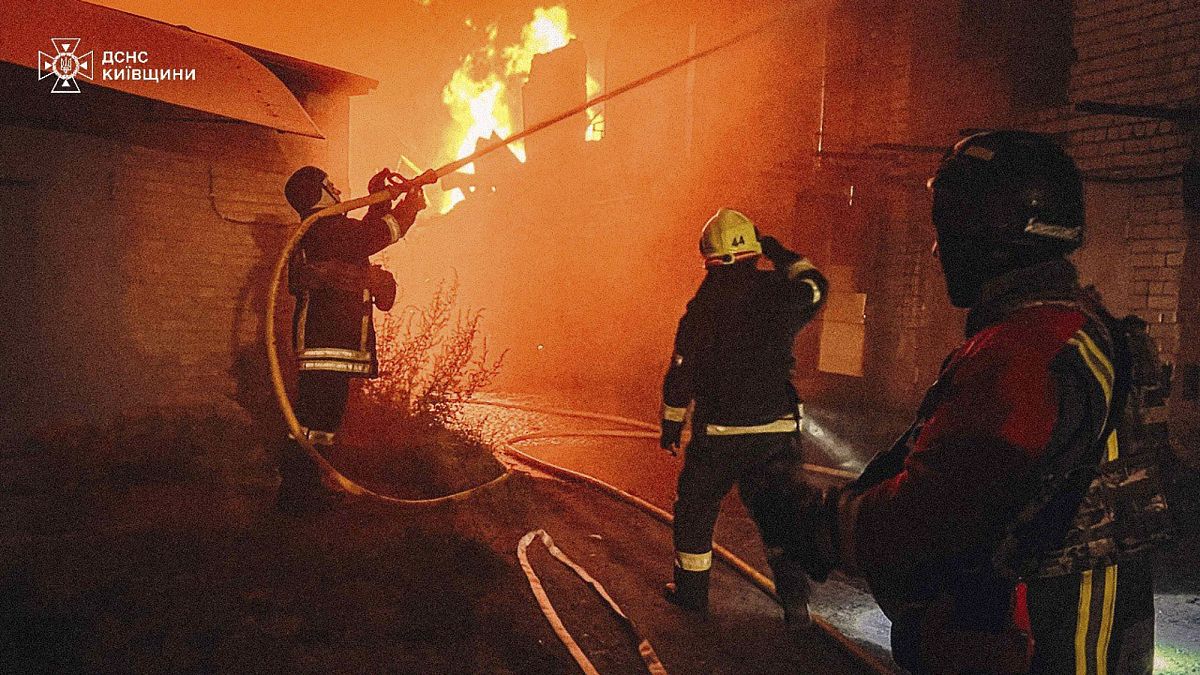

In a world increasingly interconnected by the complexities of global diplomacy, recent developments across various regions continue to command international attention. With a focus on humanitarian impacts and diplomatic engagements, this overview explores the unfolding events in Ukraine, the Gaza Strip, and Afghanistan.
The situation in Ukraine has escalated amid ongoing tensions. In a significant military operation, Russia launched a substantial aerial attack on Kyiv, employing approximately 550 drones and missiles. Citizens of Kyiv reported the scale of this attack as greater and more threatening than past incidents. As infrastructures were targeted and fires ignited, a community of resilience emerged, notwithstanding the injuries endured by at least 23 individuals. The attack coincided with a diplomatic conversation between Russian President Vladimir Putin and former U.S. President Donald Trump. Although the specifics of their dialogue remain under wraps, topics included Ukraine and Iran, providing a subtle backdrop to these dramatic events. Ukraine’s President Volodymyr Zelenskyy expressed skepticism regarding the substance of these talks, noting the distinct personalities involved.
In parallel, the crisis in Gaza presented its own set of urgent humanitarian challenges. An escalation of hostilities led to a heavy toll on the civilian population as Israeli airstrikes and artillery fire intensified. The conflict, already severe, deepened with the recent surge in attacks affecting aid queues and shelters, creating a dire situation for those seeking essential supplies. Reports indicated that at least 94 individuals, including women and children, lost their lives amid the strikes. In a poignant illustration of this conflict’s toll, Marwan al-Sultan, a prominent cardiologist, was among those killed.
As the conflict intensifies, diplomatic avenues are being explored. Hamas officials are considering a U.S.-proposed ceasefire deal, with discussions underway in Istanbul. Although not finalized, the potential agreement represents a glimmer of hope for reducing hostilities. The group seeks guarantees for a lasting resolution, beyond a temporary ceasefire. The presence of other Palestinian factions at the negotiation table underscores the complexity and importance of these talks in steering the region toward peace.
Meanwhile, in response to the ongoing situation in Gaza, a voice from the international community emerged in the form of a UN expert, urging countries to reconsider their trade engagements with Israel over what was described as a ‘genocidal campaign’. Such a call to action highlights the ethical and moral considerations at play in global politics, while emphasizing the need for international solidarity to protect human rights.
In a separate but notable geopolitical development, the Taliban-ruled Afghanistan recently achieved a diplomatic milestone. Russia became the first country to formally recognize the Taliban’s government, a move described by Afghan officials as a ‘brave decision’. This recognition follows the Taliban’s return to power in 2021, as they establish their governance under an austere interpretation of Islamic law. The engagement between the Taliban leaders and Russia’s ambassador in Kabul underlines shifting allegiances and evolving relationships on the global stage.
Amid these developments, efforts to restore a semblance of normalcy have seen fruition in other quarters. Tehran’s Imam Khomeini Airport witnessed the arrival of the first international flight post a suspension, resuming activities after a period of tension due to regional conflicts. FlyDubai’s arrival from the UAE signals endeavors to revive connectivity and bolster regional cooperation.
As global events unfold, the tapestry of international relations is interwoven with ongoing challenges and emerging opportunities. Diplomatic talks, humanitarian concerns, and regional dynamics all contribute to shaping the future pathways toward peace and recovery. This interconnected landscape invites reflection on the role of global collaboration in fostering stability, addressing crises, and nurturing hopes for a balanced world. Amid the tumult, the human spirit’s resilience shines as communities and nations steadfastly navigate toward a more peaceful future.
Source: {link}
